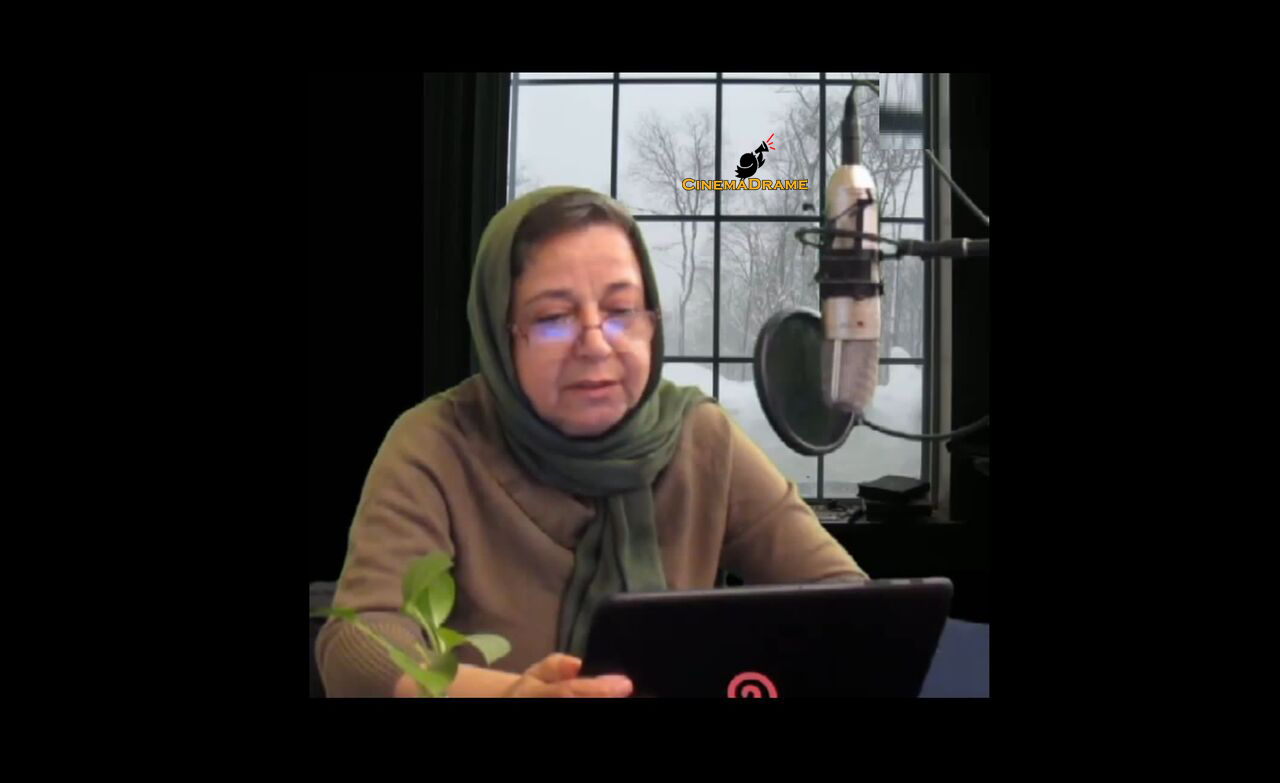Veteran Storyteller Zohreh Hatami Passes Away

According to cinemadrame News Agency, Mojtaba Nariman, director of Nariman Publishing, announced the passing of Zohreh Hatami, stating: Zohreh Hatami, a storyteller and former student of Safdar Taghizadeh, passed away in the U.S. after a period of battling cancer. Tannaz Taghizadeh, the daughter of the late Safdar Taghizadeh, informed me of the news a few hours ago.
Hatami was born in 1955 (1334 in the Persian calendar). Her first short story was published in 1987 (1366) in the Sokhan book series. She worked in cinema and television for several years, and her last book, “With Hafez in Alaska” (Ba Hafez dar Alaska), was released in 2018 (1397) by Morvarid Publications.
The first story in the book, “With Hafez in Alaska,” tells the tale of a woman who carries her homeland, Iran, with her in a foreign land. A homeland that sometimes fits into a volume of Hafez’s poetry, sometimes only in a few Farsi words spoken, and sometimes in the landscapes of Alaska, comparing them to similar scenes in Iran.
Femininity permeates all of Zohreh Hatami’s stories; even when the main characters are men, the theme remains the pains of women. Migration, alienation, being a woman, old age, death, and so on are the main themes of Zohreh Hatami’s stories, expressed with very different subjects and in widely disparate spaces and times:
“It’s not the season for going to the mountains anymore. I myself wandered in the mountains for a whole winter. Farrokh had just started walking. I was in a strange city, I didn’t know the informants. Our comings and goings were reported. They came from the center to investigate. They knew everything. A strand of my hair turned white that very day.” (From the book, part of the story “Heavy Snow”)
The story “Grandmother” (Madarbozorg), dedicated to Safdar Taghizadeh, is so bitter that it takes away the sweetness of some stories and remains like a bitter almond that you put in your mouth among sweet almonds, making your palate bitter. A bitterness that, of course, complements the taste of the stories. The story of old age, homelessness, and being a burden, and all three pains simultaneously crash down on the reader.
However, the artistry of Zohreh Hatami’s pen is showcased in the story “The Man Who Lost His City” (Mardi Ke Shahresh Ra Gom Karde Bood). A story written in the style of ancient tales. From the theme of the story to the narrator’s tone, from the character’s desire to go to the city to the madness and the nature of the storytelling. Adhering to all these points, and with precision and keen observation, all of it has made this story very engaging and sweet for the reader, who cannot guess its ending.







